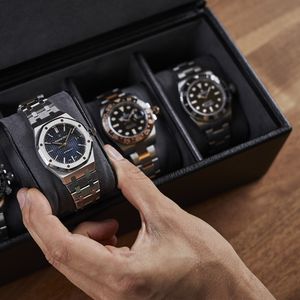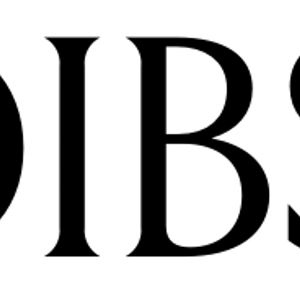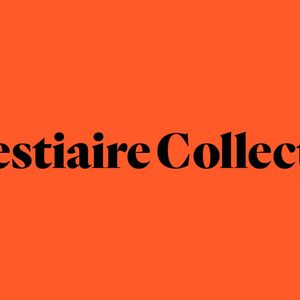Need a new leash for your dog, a last-minute costume for your fourth grader’s class play, or a smoke alarm battery? The largest online marketplace in the world has seemingly endless options of each with the convenience of being able to order in your jammies. Amazon’s dominance of the online marketplace space is no secret, but it became even more profound during the pandemic. And, the company’s record growth in 2020 has now been eclipsed by its 2021 performance; Amazon’s revenue bounded to 37.6% in 2020 (up from 26.3% from 2010 to 2019), and has grown 34.8% in the first six months of this year to $221.60 billion versus $164.36 billion in the same period of 2020.
Not surprisingly, online sales exploded across a multitude of industries in 2020 as shoppers sought a new way to quench their shopping thirst without entering a physical store. According to a Digital Commerce 360 report, consumers spent $861 billion online with U.S. retailers last year; that’s a rise of 44% from 2019.
The online growth track has been somewhat tempered by growing vaccination rates and the reopening of borders and brick-and-mortars in 2021, as expected. But e-commerce numbers continue to rise. Recent U.S. Department of Commerce figures show that online sales in the second quarter of this year are up nearly 10% from Q2 2020.
The luxury sector is also seeing a boost, according to the Bain & Company Luxury Study 2021 Spring Update. “Growth of the online channel remains robust as new clients buy luxury online for the first time, and the range of prices is widening, with more entry-level products but also more high-end items,” it says.
Today, you can go online and buy a $12 million Colorado ranch, a rare supercar or piece of art, or a luxury timepiece, with just a few clicks. And many people are.
“The two factors driving the creation of these online luxury marketplaces are the pandemic’s effects on live shopping and the assumption that since wealthy consumers have been driven online, they will buy highly considered, high-value, high-risk, high-emotion products and services online, too,” says Milton Pedraza, CEO, Luxury Institute, LLC. “Previously, these multi-luxury asset marketplaces have had limited success and were mostly advertising and brochureware in nature.”
Luxury online marketplaces like 1stDibs were already thriving before the pandemic and have seen significant upticks since. “The pandemic accelerated buying luxury goods online, often sight unseen,” says Chief Marketing Officer, Nancy Hood. The company has seen increased interest and sales among its two main buyer segments, the global consumer and the interior designer.

Vladimir Kagan | Curved Serpentine Cloud Sofa | 1stDibs | $18,500
It’s a trajectory that’s familiar to JamesEdition, a luxury online platform featuring high-end real estate, rare cars, jets, yachts, and timepieces. “We are fortunate to have seen dramatic growth across JamesEdition, in particular in luxury real estate globally,” says Chief Executive Officer, Eric Finnås Dahlström. “We’ve seen, on average, a five-times increase in usage metrics and traffic volumes from the beginning of 2020, with a more than 10-time increase in some geographies. We’ve been able to help clients successfully close on properties in an average of one-to-two months, where typically in the higher-end segment, these properties can be on the market for six months or more.”
2015 McLaren P1 GTR rwd | JamesEdition.com | $3,040,000
An important side benefit of the increased attention, traffic, and revenue brought on by the pandemic: These high-end online marketplaces are able to reinvest and make welcome refinements. “During the last 12–18 months, we have also made massive product changes to our real estate section with a complete redesign, updates to our technical infrastructure, implementation of machine-learning models, and increased marketing investments,” says Dahlström. Chrono24 and Vestiaire Collective, online marketplaces for luxury watches and resale fashion, respectively, are also using their success to position themselves for the future. Vestiaire Collective recently raised $216 million, with funds earmarked for new brand partnerships, increased staffing, and a future goal of becoming carbon neutral and achieving B Corp certification by 2026. After what CEO Tim Stacke calls the company’s most successful year ever, Chrono24 recently secured more than $118 million in Series C investment, with the funds labeled for global expansion, recruitment of top talent, and facilitating logistics to streamline processes and augment global service efforts.
These two market segments have seen significant growth since the start of the pandemic. Per the Federation of the Swiss Watch Industry FH, Swiss watchmaking sales are above pre-pandemic numbers, with continued development across Asia in 2020 and a boost in the U.S. this past summer; American sales were up nearly 50% in July compared to July 2019, making it the leading market worldwide that month.
After what CEO Tim Stacke calls the company’s most successful year ever, Chrono24 recently secured more than $118 million in Series C investment, with the funds labeled for global expansion, recruitment of top talent, and facilitating logistics to streamline processes and augment global service efforts.
These two market segments have seen significant growth since the start of the pandemic. Per the Federation of the Swiss Watch Industry FH, Swiss watchmaking sales are above pre-pandemic numbers, with continued development across Asia in 2020 and a boost in the U.S. this past summer; American sales were up nearly 50% in July compared to July 2019, making it the leading market worldwide that month.

Chrono24
Not surprisingly, athleisure flourished during the pandemic. Market leader Lululemon closed out the 2020 fiscal year in the black on the strength of its online sales and fiscal first-quarter revenue for 2021 was up 88%. But while COVID prompted many to veer toward comfort, the desire for luxury fashion remains. Vestiaire Collective announced their overall transaction volume doubled in 2020 with significant impact in the U.S. and Asia. “As of January 2021, local sellers in those regions had increased their items sold by more than 250% year-over-year,” Tiger Global partner, Griffin Schroeder, said in a news release. Tiger Global is the U.S. investment firm that, along with French luxury group Kering, was behind the large C Series financing infusion earlier this year. Bain & Company projects the luxury secondhand market will be one of the largest growth sectors moving forward after surging to $33 billion in 2020, up from $30 billion in 2019. Part of the reason: “The market for pre-worn luxury items encompasses not only entry-level younger consumers who are mainly buying aspirational categories and products but also top spenders and collectors who are searching for high-end or collectible products,” they said in their Luxury Study 2021 Spring Update. Those demographics play a role in all types of online behavior. According to Milton, younger individuals who have grown up in a digital world may be more likely to make a pricey purchase online. “There is no doubt that wealthy younger consumers may buy expensive items such as jewelry and watches online if they can buy directly from a trusted brand or supplier,” he says. “Others will never buy sight-unseen, and others insist on testing the luxury asset because they also enjoy the shopping experience when it comes to high-value luxury.”
Pablo Picasso | "Grand Tête" | 1stDibs | $265,000
However, the pandemic also helped assuage many of the fears consumers had about making significant purchases online, according to Hood. “The pandemic moved our industry forward by several years. Consumers are now very comfortable shopping for luxury goods online, many times which are not refundable. We do expect that as the world continues to open up, we will continue to see this as consumers have gotten used to and experienced the benefits of buying luxury online.” While it may seem unthinkable to buy a $700,000 Victorian crystal chandelier, a pre-owned, rare crocodile Hermes Birkin bag, or a multi-million-dollar property over a computer or phone screen, we may, indeed, be on the precipice of widespread adoption—especially for those for whom the term “home base” has changed. “The pandemic pushed more people to go online for all types of purchases, and also introduced the possibility of working remotely,” says Dahlström. “We are now seeing a systemic shift, both in terms of where people choose to live and the type of properties they are looking for.”
Dynamiq GTT 115 by Studio F.A. Porsche | JamesEdition.com | $14,350,000
Bain & Company projects that as much as one-third of all personal luxury purchases will occur online by 2025, with digital revenues reaching $136 billion. But long-term winners in the online marketplace will be those who can pivot to meet the changing needs of consumers. “Brands have been forced to rip up the playbook and innovate rapidly in light of the crisis,” says Bain & Company partner Federica Levato in a news release. “As life hopefully begins to return to normal, customers are expecting a tech-enabled human relationship with brands. Winners will need to stay closely in touch with the key trends shaping the new normal lifestyle—all while remaining differentiated and creating a narrative that is true to their own culture.”Four Companies You Need to Know About
 1stDibs aims to capture the magic of the Paris flea market as an internet-based platform for rare furniture, fashion, fine art, and jewelry. Launched in 2000, 1stdibs curates listings weekly, enabling direct connections between vetted sellers and high-end collectors globally.
The company went public in 2021 and reported net revenue of $24.7 million, an increase of 29% year-over-year, for its second quarter ended June 30, 2021. Gross profit for the same period was $17.4 million. The number of orders and active buyers also increased dramatically over the same time period.
1stDibs aims to capture the magic of the Paris flea market as an internet-based platform for rare furniture, fashion, fine art, and jewelry. Launched in 2000, 1stdibs curates listings weekly, enabling direct connections between vetted sellers and high-end collectors globally.
The company went public in 2021 and reported net revenue of $24.7 million, an increase of 29% year-over-year, for its second quarter ended June 30, 2021. Gross profit for the same period was $17.4 million. The number of orders and active buyers also increased dramatically over the same time period.
 Chrono24 has been the global online marketplace for luxury watches since 2003. More than 20,000 professional dealers and private sellers from more than 100 countries offer 475,000+ watches. The site attracts more than 500,000 visitors per day.
Chrono24 has offices in Berlin, Hong Kong, and New York, with headquarters in Karlsruhe, Germany. Chrono24 recently secured $118M plus in Series C investment. After posting the company’s best numbers ever in 2020 and on track to surpass them in 2021, Chrono24 is looking to expand outside of Europe, recruiting top talent, increasing global service efforts, and facilitating logistics.
Chrono24 has been the global online marketplace for luxury watches since 2003. More than 20,000 professional dealers and private sellers from more than 100 countries offer 475,000+ watches. The site attracts more than 500,000 visitors per day.
Chrono24 has offices in Berlin, Hong Kong, and New York, with headquarters in Karlsruhe, Germany. Chrono24 recently secured $118M plus in Series C investment. After posting the company’s best numbers ever in 2020 and on track to surpass them in 2021, Chrono24 is looking to expand outside of Europe, recruiting top talent, increasing global service efforts, and facilitating logistics.
 Online luxury resale store Vestiaire Collective specializes in designer fashion, handbags, vintage, and jewelry, calling itself “the leading global app for desirable pre-loved fashion.” Vestiaire Collective’s rolling inventory is comprised of three million items with 550,000 new listings every month.
Launched in Paris in 2009, the company has offices in Paris, New York, Hong Kong, and Singapore plus a tech hub in Berlin. The company recently raised $216 million to reach a valuation above $1 billion.
Online luxury resale store Vestiaire Collective specializes in designer fashion, handbags, vintage, and jewelry, calling itself “the leading global app for desirable pre-loved fashion.” Vestiaire Collective’s rolling inventory is comprised of three million items with 550,000 new listings every month.
Launched in Paris in 2009, the company has offices in Paris, New York, Hong Kong, and Singapore plus a tech hub in Berlin. The company recently raised $216 million to reach a valuation above $1 billion.






